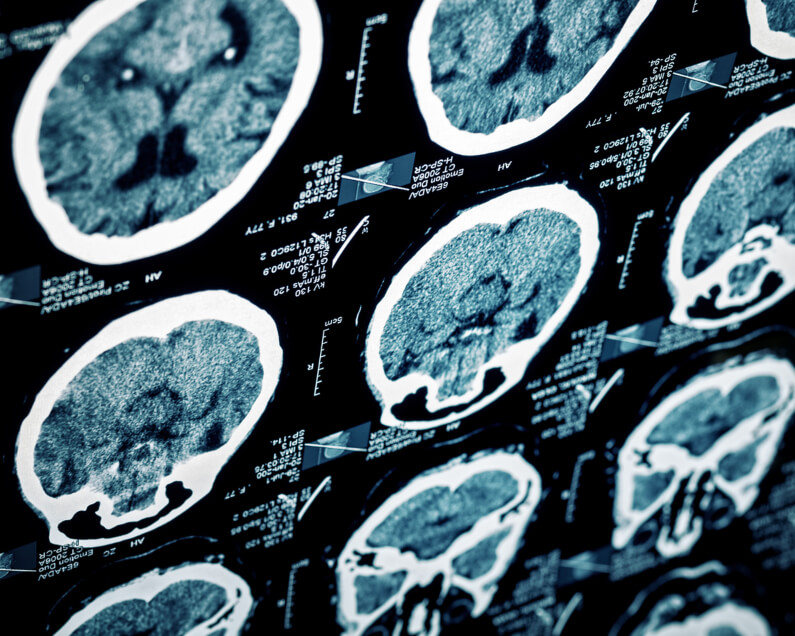There can be serious and long-lasting consequences related to traumatic brain injuries. Contact a medical professional immediately if you or a loved one has suffered an injury to the head. If the injury was caused due to the negligent or reckless act of another, contact an Allentown brain injury attorney at Drake, Hileman & Davis, PC today by calling 888-777-7098.

Our Allentown Traumatic Brain Injury Lawyer Explains What Makes a Brain Injury “Traumatic”
A traumatic brain injury occurs when the brain suffers either temporary or permanent damage. Any injury to the head can cause impaired thinking, memory loss, emotional functioning (e.g., personality changes, depression), and other cognitive-related issues. Traumatic brain injuries are very serious and it is important that you know how to identify the signs and symptoms of these types of injuries.
The Centers for Disease Control and Prevention (“CDC”) has issued some alarming statistics related to traumatic brain injuries. For example, in the U.S., about 2.8 million traumatic brain-related injury emergency department visits, hospitalizations, and deaths occurred in 2013. In the same year, traumatic brain injuries contributed to the deaths of nearly 50,000 people. The CDC also found:
- From 2007 to 2013, traumatic brain injury emergency room visits increased by 50%.
- In 2012, nearly 330,000 children were treated for injuries that included a diagnosis of concussion or traumatic brain injury.
- From 2001 to 2012, the rate of emergency visits for sports-related injuries with a diagnosis of concussion or traumatic brain injury more than doubled among children.
These are startling statistics given the serious and potential life-long impact that traumatic brain injuries can have.
How Do Traumatic Brain Injuries Commonly Occur?
In a 2013 study, the CDC recognized the following common causes of traumatic brain injuries as follows:
- Falls were the leading cause of traumatic brain injuries (accounting for approximately 47% of diagnoses). These falls were primarily attributed to children and the elderly.
- Being struck by or against an object was the second leading cause of traumatic brain injury (accounting for approximately 15% of diagnosis). Children were far more likely than other age groups to have traumatic brain injuries caused by being struck by or against an object.
- Motor vehicle crashes were the third overall leading cause of traumatic brain injury-related diagnoses (across all age groups).
The CDC specifically identified children and the elderly as being most susceptible to suffering a traumatic brain injury. Seek immediate medical attention if you believe that you or a loved one has suffered a traumatic brain injury. All brain injuries/head traumas should be taken seriously. Once you or your loved one has received treatment, your next step is to contact an Allentown brain injury lawyer.
What are the Symptoms of a Traumatic Brain Injury?
Traumatic brain injuries can have many different symptoms of varying severity. Seek immediate medical attention in Allentown or elsewhere throughout the state if someone exhibits any of the following:
- Difficulty thinking clearly
- Headache
- Fuzzy or blurry vision
- Irritability
- Feeling slowed down
- Nausea or vomiting (early on)
- Dizziness
- Sadness and emotional swings
- Sleep issues
- Difficulty concentrating
- Sensitivity to noise or light
- Balance problems
- Trouble falling asleep
- Difficulty remembering new information
- Loss of energy
- Nervousness or anxiety
Medical professionals may be able to help those suffering from a traumatic brain injury, so seek appropriate medical attention as quickly as possible following a head injury.
Our Allentown Brain Injury Lawyer Understands the Long-Term Effects of a Traumatic Brain Inury
TBIs may result in short-term or long-term health effects, depending on the severity of the TBI. For example, a concussion-type mild TBI may cause only short periods of symptoms, lasting a few days or weeks, as long as they do not suffer additional TBIs during that time.
However, a person who suffers a moderate-to-severe TBI may have long-term or life-long effects from the injury and should be under the immediate care of qualified health care professionals.
Additionally, TBIs affect children more severely than adults. A substantial TBI to a developing brain may disrupt a child’s mental development and limit their ability to participate in school and extracurricular activities, such as sports, especially contact sports. Children may experience changes in their thinking, behavior, and health that may affect learning, self-control, and participation in social activities, all of which are important to developing into a productive adult.
How Do I Support a Loved One Who Has Suffered a TBI?
TBIs can be just as destructive to a loved one or caregiver as they are to the victim. Some important tips include:
- Spend time.
- Give positive feedback.
- Let the victim know that you love them. This is likely to be very important, even if the victim cannot express that.
- Be available without being pushy or over-intrusive.
- Keep communication open, show empathy, and don”t rush them into anything.
- Do not judge them.
- Take an interest in their activities.
- Encourage them to talk about what’s important to them.
- Take the victim’s feelings seriously.
- Encourage and support friendships and relationships.
- Help them with their therapy.
- Encourage activities that promote health, such as exercise, good eating, and regular sleep.
- Do things the victim enjoys, and enjoy it with them.
Contacting an Allentown Traumatic Brain Injury Lawyer at Drake, Hileman & Davis, PC is Easy
Contact an Allentown brain injury attorney at Drake, Hileman & Davis, PC by calling 888-777-7098 or online today if you have suffered a traumatic brain injury caused by the reckless or negligent acts of another. We are here to help you get the compensation that you deserve for your injuries.

